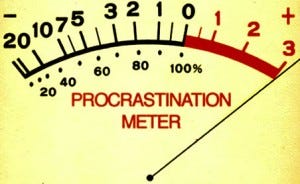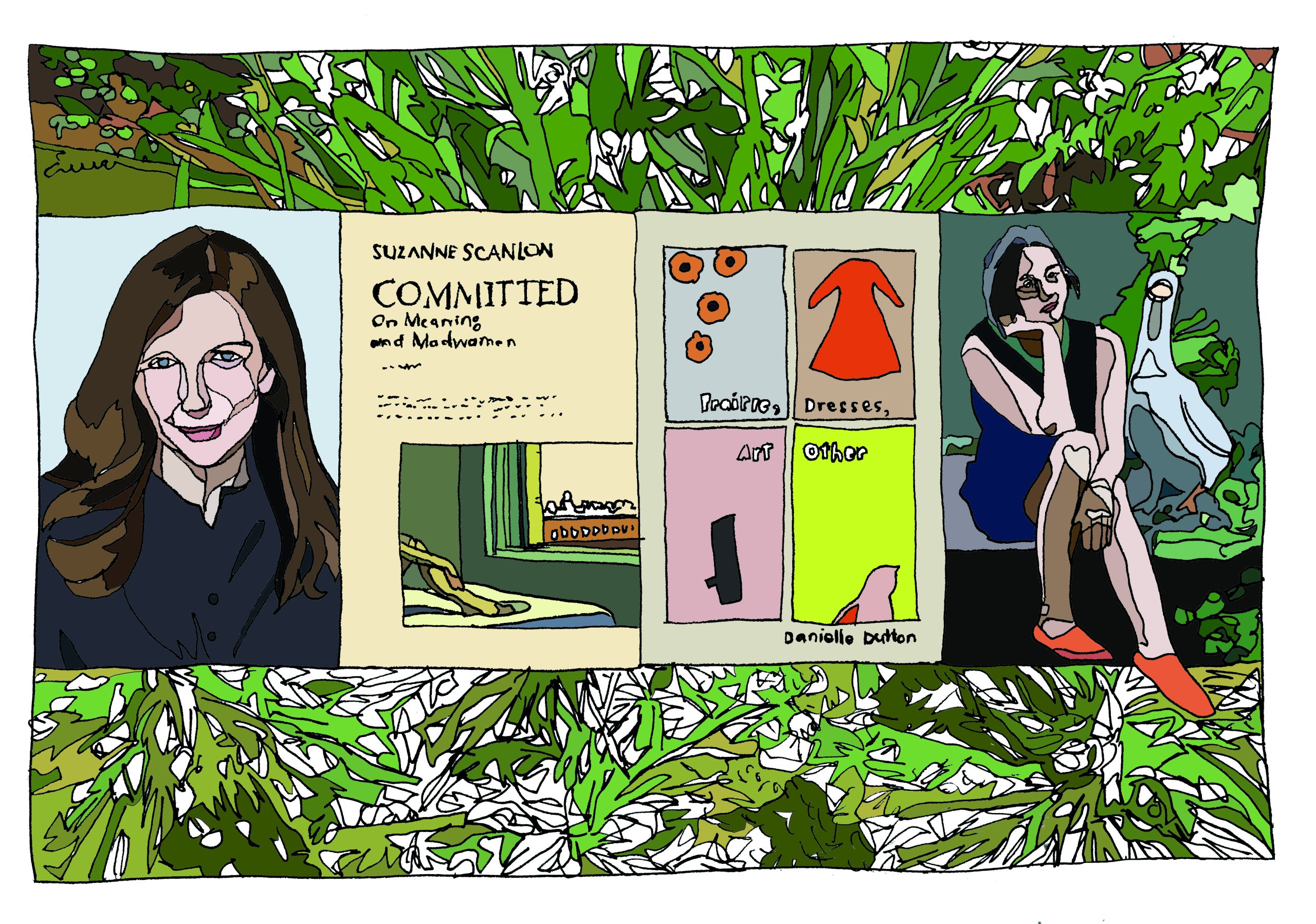news
The Procrastinator as a Philosopher of Desire

In July 2004 I went to Venice with my shadow as companion. The idea was to spend a few weeks alone, imbibing the atmosphere of the city, getting lost in that labyrinth of alleys where each street is more an obstacle than a route to a destination. I would try to master its layout, become its confidant. This is the seemingly unique dream of numberless hordes of smitten valentines.
I was in the very first urge of invention as I’d hit upon an idea for a book to be set there. It was going to be a lean beast, I was certain, a thing of subtle interactions, with a coterie of colorful, absurd exiles circling around a wealthy Englishman, he a Luddite, possibly a madman, and in his dark rooms there would be anxieties, rivalries, glimpses, sickness, a central thing that I don’t want to get into, and much else besides, but around it all: Venice―sad, infinitely beautiful, like a deflowered nun, at once old and ever young.
I found a cheap room some two hundred yards from the Piazza San Marco. I was told Vivaldi had lived in the house at some point. Sure, maybe. The Pietá where he worked was just a short stroll down a street from the place―but I couldn’t suppress an inward smirk, wondering how many other houses boasted of similar heritage, one man throwing a million shadows in a million strange rooms.
Before flying south from Copenhagen, I took pleasure in making a list of projected chapters that ran to 33―I’d wanted to mirror the 33 cantos of Dante. (Can you believe the easy chutzpah of the young!) Lists are a common vice among procrastinators. They give a false sense of effort, of accomplishment. A list is a kind of ghost of the finished work. I planned, more than realistically, I thought, to finish the book within six to nine months. It would be about 210 pages. Easy. I had the whole story sketched out, chapter by chapter. Some eight years later, that book is yet to see its final page.
So what is it? Doubt? Common laziness? Or something else?
“Our doubts are traitors,” says Lucio in Measure for Measure. Doubts wound us in our largest and our purest

intentions. They sabotage. It is the demon that whispers in Eve’s ear, ‘Perhaps it is not so bad, my love, a tiny bite.’ Doubters are often self-serving rationalists who hesitate to squander themselves on faith. Through all those years of industrious inertia my doubt took this form: You have within you the spark of mastery, perhaps, but you may want to wait for the gift to come to full bloom. Wait six months, a year. And then another six months. And another. I was waiting to grow to my full height, my full potential, and I was telling myself I did not want to waste the book on an inferior, adolescent version of my talent. So you wait for age to improve you, like wine.
Doubters, above all, refuse commitment. Because commitment is certainty. And certainty is solid, airless, futureless, ultimately unpoetic. If I’d committed to writing the book, finishing it, then the book would be sealed, untouchable, and most fearful of all: unimprovable.
Could this doubt merely be an expression of laziness? Orwell said all writers are “vain, selfish, and lazy, and at the very bottom of their motives there lies a mystery.” Reasonable, perhaps. Think of Bruno Schulz, or Catullus, or Laurence Sterne―men of one or two perfect books. Perhaps they’d tarried with their deliveries, were shabby butlers to the muse. But then consider Balzac, Dickens, or Philip Roth, and doubt again. I have a list of about ten books that I plan to write — projects that have titles, plot lines, developed characters. All that’s required is the actual work. And discipline. Easy.
The beginnings are opiate. I know of nothing quite so exciting as the moment a new idea for a book or story arrives. But a novelist wants a mistress in his work, not a wife. I suspect this is why completion is so repugnant: it’s a settled, static thing, drained of the mystery inherent in new, unstable things. Obviously, marriage isn’t always a miasma of routine and boredom; but here I am interested in the dynamic contrast between two archetypal kinds of love. Perhaps poets, being proverbially more intense, or combustible, engage in countless one-night stands: a new poem each night. They chase and consume and begin anew, unless they mysteriously, lazily, tarry and postpone completion. They make it new.
It seems to me that sloth and procrastination may be connected to Eros. To desire, which in its early stages is filled with the volatile, chemical reaction of new love. The procrastinator delays climax, that final, deflating groan. You let the book evade you, torment you, lead you on, promise you delight, and then leave you locked out at the gate. And yet the whole time you are both the prisoner and the inquisitor. But you are happy because the pursuit is still on. There is something to look forward to, to seek, to hunt, to wake toward. This is the procrastinator as a philosopher of desire. A tantric guru of creation. Perhaps this way you also delay the discovery whether you are any good? That great first novel is thus always on the way. But you can’t be a promising writer forever. A friend of mine who has published his first novel tells me lately: get a draft done. That’s the secret. Or even better: get a flagellating editor.
Venice was inspiring, especially when I got away from the tourists (every visitor to Venice dismisses his fellow travellers as mere tourists — unworthy, unserious riffraff — while you, and only you, have an exclusive, intense relationship with V.). Every single thing about it was suggestive, usable. If I had stayed for a few months, maybe I would have finished my book. But who knows? Knowing me, I’d delay.
Slavoj Zizek says the worst thing that can happen to your desire is its fulfillment. I think this holds true for most things, but in the case of art you need to fulfill one desire in order to move on to another. No writer wants to be The No Book Wonder. So I declare: This year it is. It will be finished. Shame will get me there, if nothing else will. I have a list. Besides, I need a new mistress and a new courtship.
***
— Elvis Bego was born in Bosnia, fled the war there at twelve, moved around, and currently lives in Copenhagen. His writing can be found on The Threepenny Review, Squawk Back, and Bookslut.









